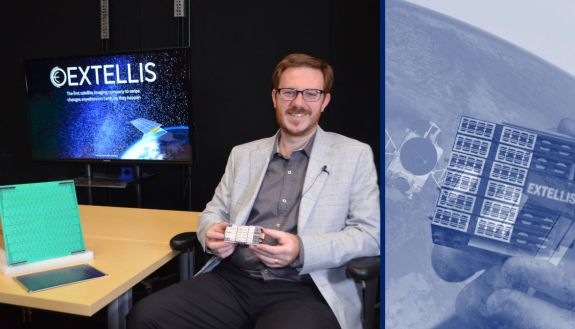

A hamster-sized primate from Madagascar, the fat-tailed dwarf lemur can turn back the aging clock during its annual hibernation season, according to markers of cellular aging called telomeres. Credit: David Haring, Duke Lemur Center
Latest
-

January 8, 2026
In a Changing World, How Do Trees Grow? The Answer Is Complicated.
Read on Pratt School of Engineering
-

-

-

-

-

-

-
 Michael Boyarsky has pioneered a new way of making satellite imaging antennas. Boyarsky began working on the technology 10 years ago as a grad student at Duke.
Michael Boyarsky has pioneered a new way of making satellite imaging antennas. Boyarsky began working on the technology 10 years ago as a grad student at Duke. -

November 18, 2025
DukeEngage: Giving Life to a ‘Graveyard’ of Medical Devices
Read on Kenan Institute for Ethics
-

November 13, 2025
Shining a Light on Mr. Burns — Literally
Read on Trinity College of Arts and Sciences
-
 31 Duke affiliated scholars were featured in the Highly Cited Researchers 2025 list.
31 Duke affiliated scholars were featured in the Highly Cited Researchers 2025 list. -
 NASA/Brookhaven lab studying cosmic radiation effects on astronauts - photo courtesy NSRL
NASA/Brookhaven lab studying cosmic radiation effects on astronauts - photo courtesy NSRL -

-

-
 Jessica Moore, photo by Claudine Gossett.
Jessica Moore, photo by Claudine Gossett. -
